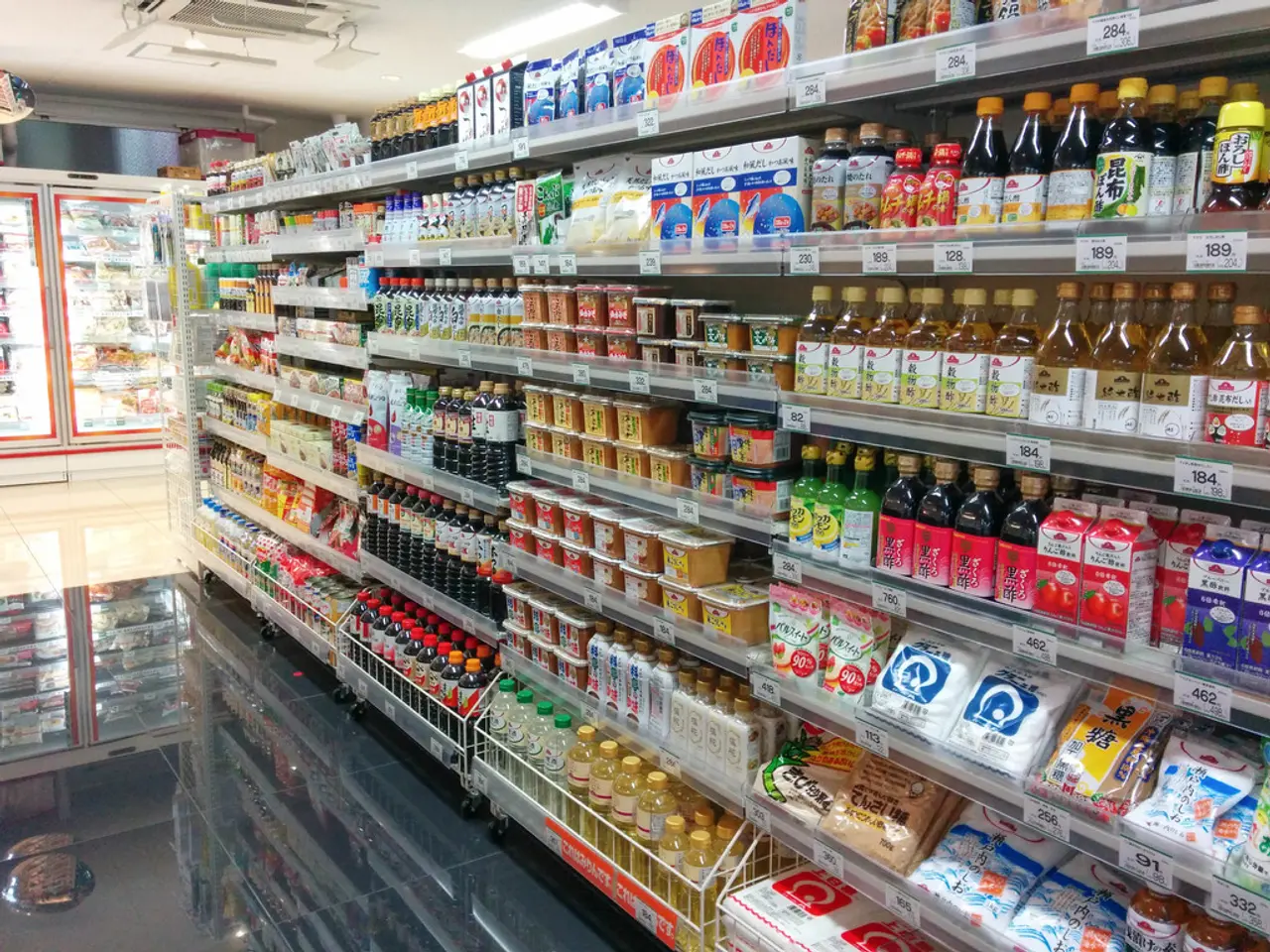Supermarket giant, Tesco, slashes costs through strategic data analysis in supply chain management.
Tesco, the British multinational grocery and general merchandise retailer, has revolutionized its supply chain management through the strategic use of advanced data analytics, machine learning, and predictive technologies. This transformation has resulted in significant savings for the company and improved customer engagement.
The heart of Tesco's data-driven strategy lies in its supply chain analytics function, which has saved the company many millions of pounds by identifying opportunities to cut waste, optimize promotions, and match stock to fluctuations in demand. The supply chain analytics team built a predictive model for promotions, considering variables like product positioning and concurrent offers.
The Teradata enterprise data warehouse plays a crucial role in this endeavour, acting as the backbone for integrating and analysing vast quantities of first-party customer and operational data. This platform supports robust data processing and allows Tesco to perform sophisticated analytics at scale, enabling real-time insights into supply chain dynamics and promotional effectiveness.
One of the key ways Tesco leverages these tools is through machine learning and predictive analytics. By forecasting customer needs more accurately, the company can adjust its supply and promotions accordingly, reducing over-promotion of low-demand items and limiting spoilage or waste from excess stock.
Tesco's Clubcard loyalty program data, housed and processed in the enterprise data warehouse, fuels personalized promotions and helps the retailer design offers that resonate with targeted customer segments. This approach increases promotion ROI and reduces ineffective discounting.
With Teradata's capabilities, Tesco integrates multiple data sources into a unified system, enabling better category management, supplier negotiations, and inventory optimization. These improvements collectively help reduce waste from unsold goods.
Tesco's AI and analytics-driven approach extends to supply chain operations, supporting smarter replenishment and distribution decisions, which keep stock levels aligned with demand patterns uncovered by data. This approach has allowed Tesco to remove £50 million-worth of stock from its depots.
The supply chain analytics team, which has grown from five people to 50, is primarily staffed by science and engineering graduates who are trained in retail expertise and SQL programming skills. Not all non-UK divisions have their data in the same organized state as Tesco's UK division, but the retailer is helping its non-UK divisions build the same data infrastructure for detailed supply chain analysis.
In addition to these advancements, Tesco has developed a statistical model that predicts the impact of the weather on customer buying behaviour. By adjusting stock levels based on the weather forecast, Tesco can reduce out of stock for goods that sell more when the weather is hot or cold.
The company's partnership with retail analytics provider Dunnhumby is known as a textbook case study for customer data analysis. In 2006, a project run by Tesco's supply chain department saved the company £16 million in one year. Today, Tesco runs thousands of promotions daily, and the web-based workflow system allows stock controllers to access a sales uplift forecast for their specific store and plan orders.
Recently, the supply chain analytics team purchased its own Teradata data warehouse for increased analysis frequency and complexity. This move underscores Tesco's commitment to data-driven decision-making and continuous improvement in its supply chain operations.
In sum, Tesco's supply chain analytics, powered by Teradata, enables a data-driven strategy that optimizes promotional campaigns to increase customer engagement and sales while simultaneously minimizing waste through improved inventory planning and demand forecasting. The enterprise data warehouse is fundamental in consolidating and analysing the data needed for these improvements.
- The strategic use of technology, particularly data-and-cloud-computing, finance, and technology, has propelled Tesco's retail business, with the Teradata enterprise data warehouse playing a vital role in consolidating and analyzing extensive data.
- Tesco's supply chain operations have experienced significant improvements, as machine learning and predictive analytics, combined with data from their Clubcard loyalty program, lead to smarter inventory planning, reduced waste, and personalized promotions that cater to targeted customer segments.
- With a continueous focus on data-driven decision-making, Tesco has expanded the capabilities of its supply chain analytics function by purchasing its own Teradata data warehouse, enabling increased analysis frequency and complexity, and fostering a growth in the supply chain team from five to 50 data-savvy professionals.




